Fieldwork – Delaware marshes
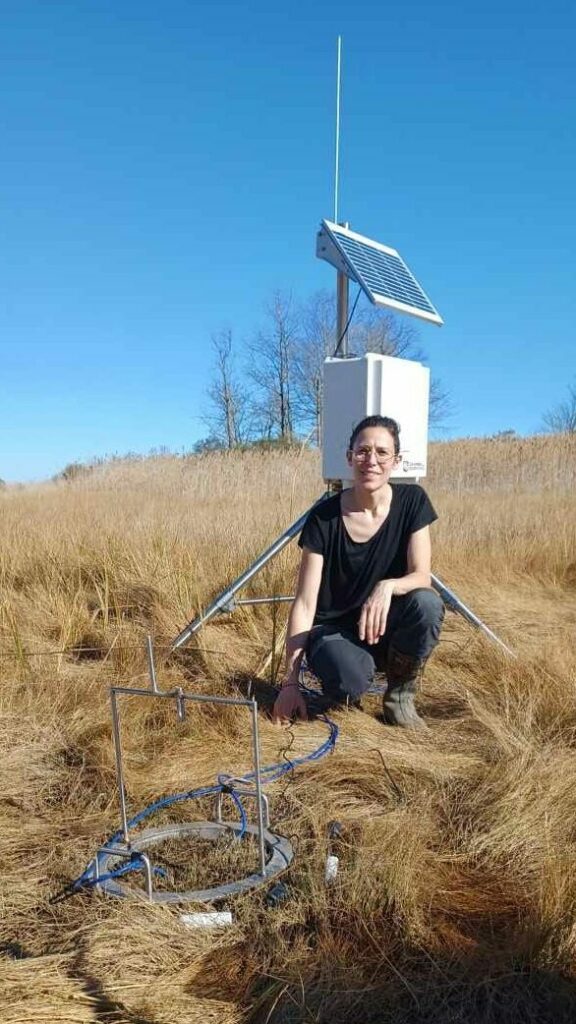
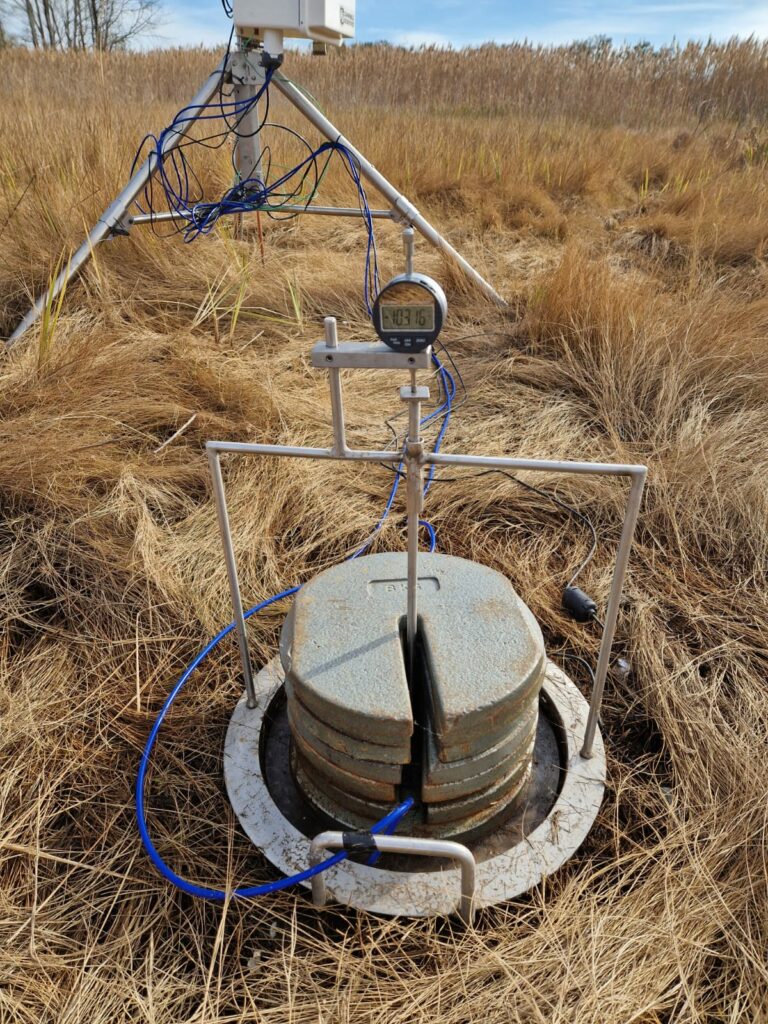
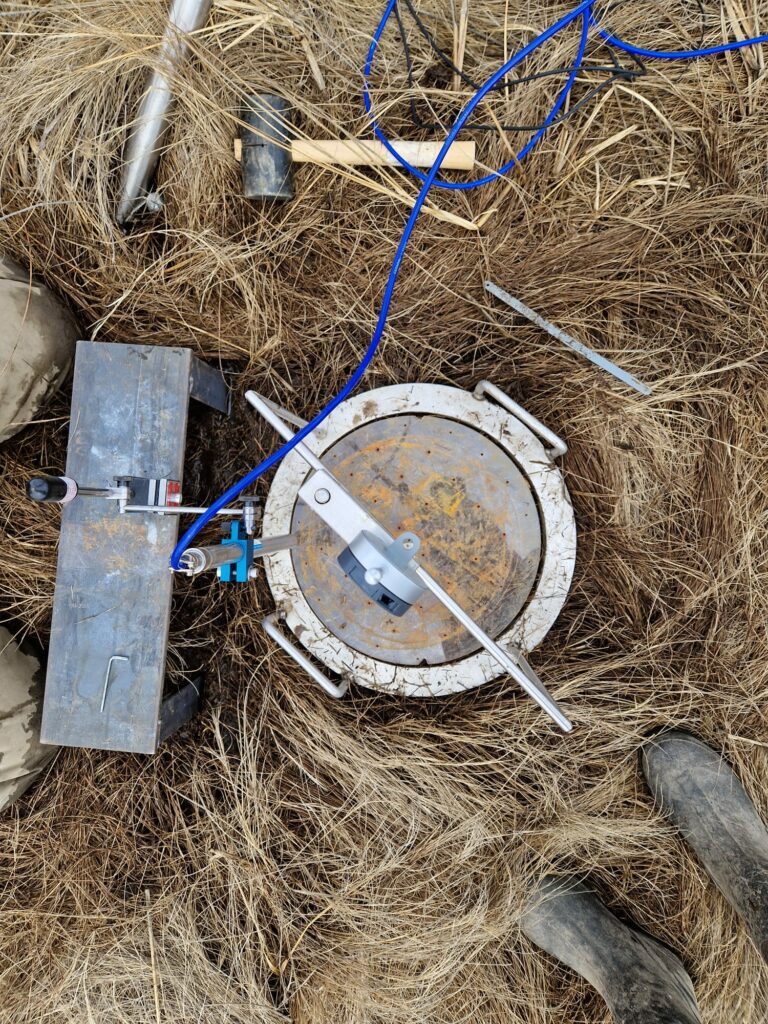
An original in-situ and portable loading test designed to characterize saltmarsh soil compressibility, that is a key parameter controlling sediment consolidation and, therefore, a crucial input factor for simulating the long-term compaction process in marshes.
This test enables overcome the use of standard oedometric compression tests developed for geotechnical investigations. These are questionable for saltmarsh deposits that experience low vertical effective stresses and are prone to compaction during sampling.
Mesocosm – University of Delaware Greenhouse
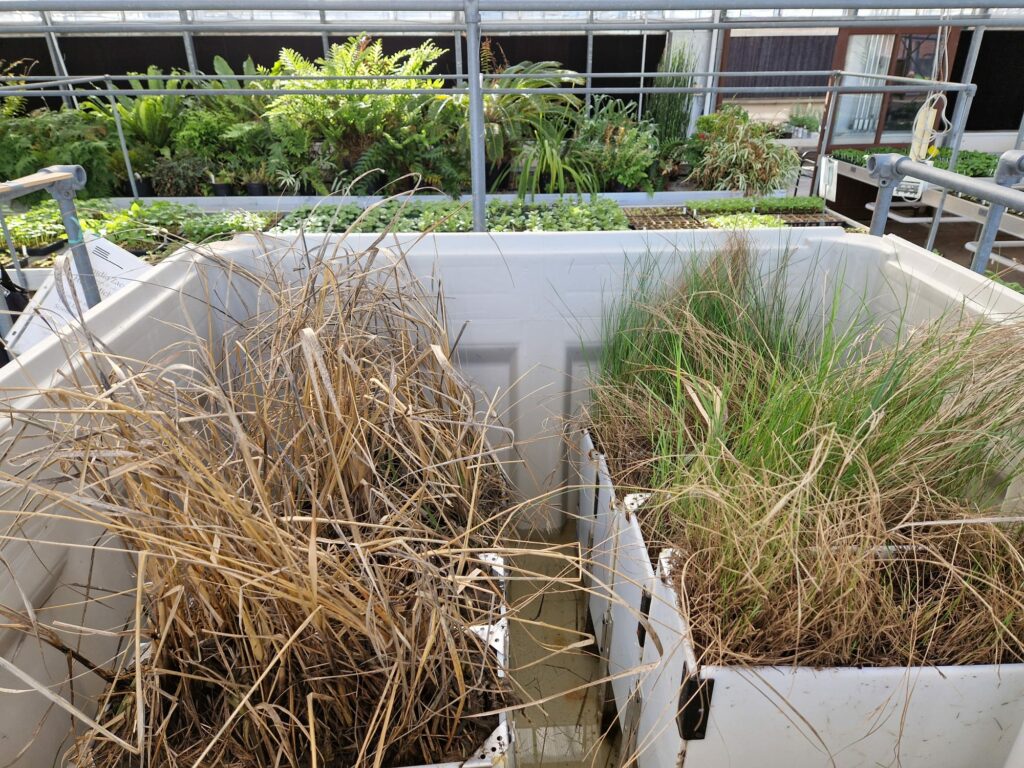
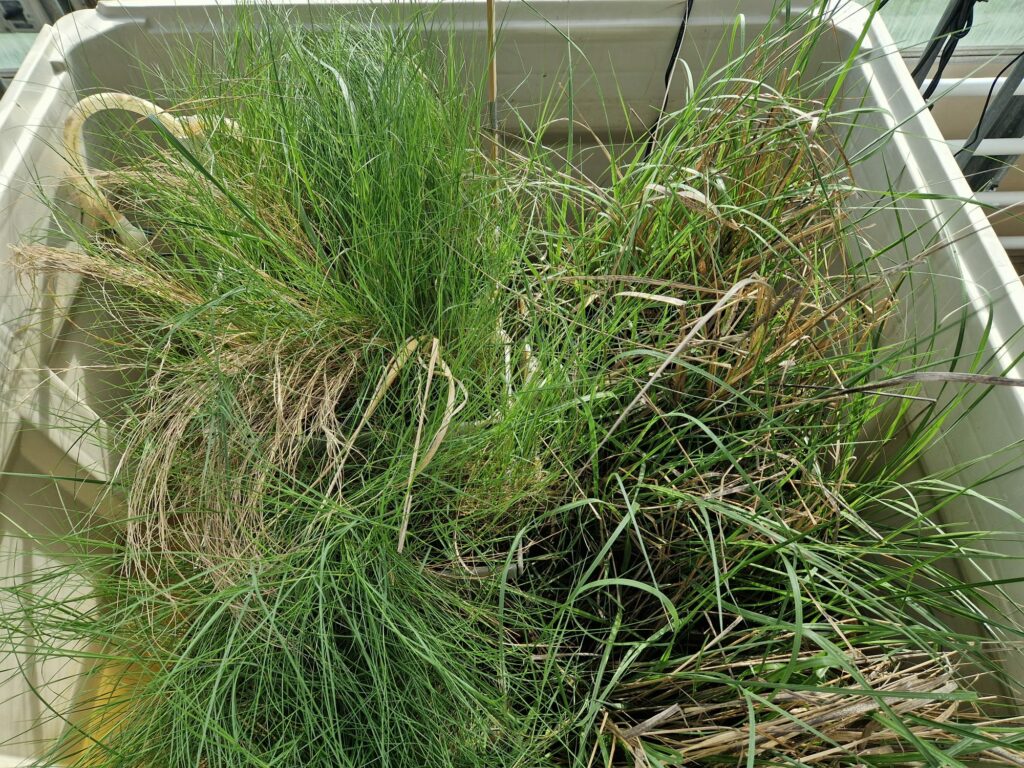
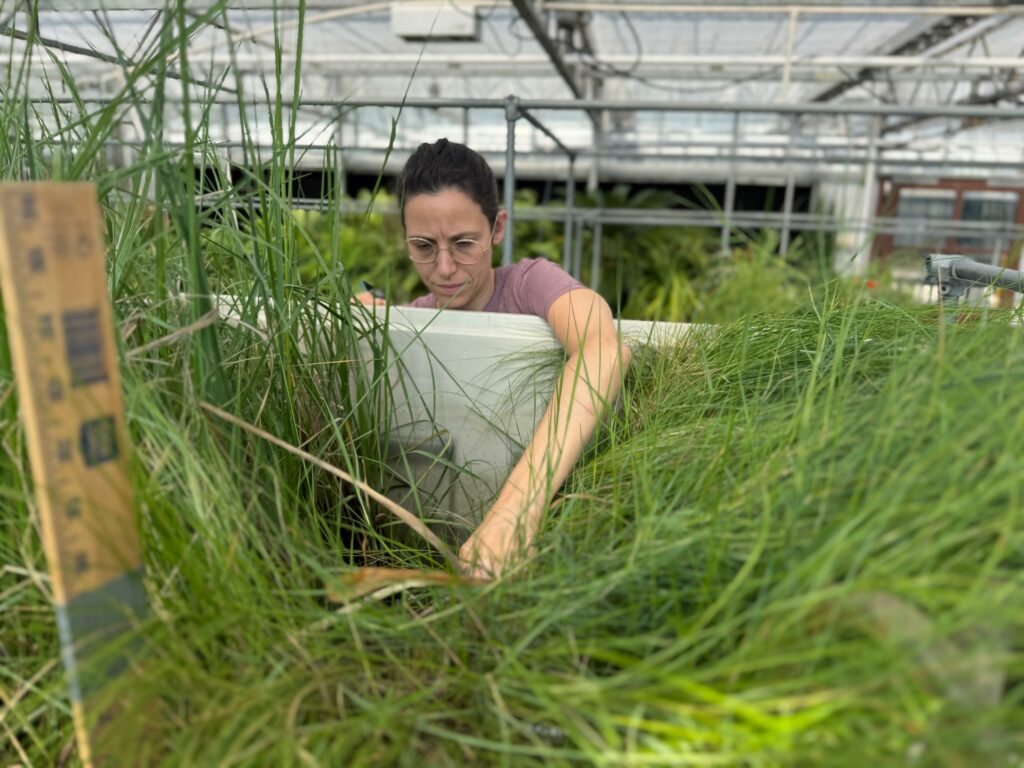
A mesocosm experimental setup has been setup. It simulates various durations of diurnal tidal inundation to test the impact of inundation time on root and organic matter decomposition and subsequently consolidation. Shallow sediment cores have been sampled from saltmarshes in Delaware. Coring locations have been selected based on dominant species (Spartina Alterniflora and Spartina Patens) and morphological characteristics (i.e. distance from channel and tidal inlet). The cores are sampled in quadruplicate per location and subjected to different inundation times facilitating plant responses from optimal biomass growth to die-off.
The experiement allows to quantify the response in aboveground and belowground biomass production to variations inundation (RSLR) and soil organic matter composition, enabling for the first time to assess their impact on consolidation behavior. Results from this experiment will provide the crucially needed link between inundation time, halophyte species, soil composition and surface elevation change to be included in the validation of a morphological module for the long-term prediction.
Mesocosm – University of Delaware Greenhouse